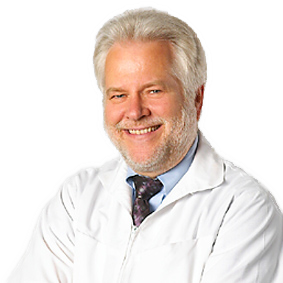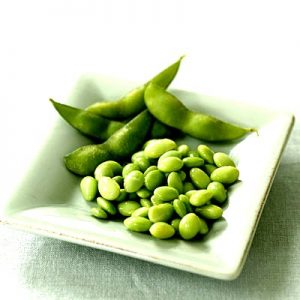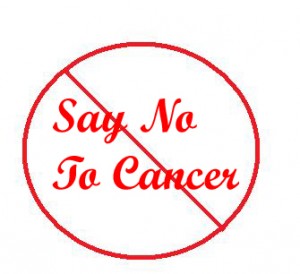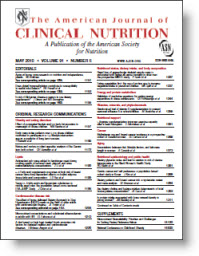A High Intake of Soy Is Directly Related To A Low Incidence of Breast Cancer
The relationship between soy intake and cancer incidence is referred to as an inverse correlation. An inverse correlation means when one factor is high (soy intake) the other factor is low (breast cancer incidence). These patterns have been observed when researchers examine soy intake and breast cancer incidence in various countries around the world.
For example, in Asia, soy intake is very high, and the breast cancer incidence is very low. In contrast, in North American and Europe, soy intake is very low and breast cancer incidence is high. This inverse correlation between soy intake and breast cancer has been ruled out as a genetic one because when Asian women relocate to the U.S. their daughters and granddaughters acquire the same cancer incidence as other Americans.
What Are The Health Benefits Of Soy Foods?
These are some of the proposed health benefits of soy, which Dr. Hilakivi-Clarke outlined. All of which, she points out, remain controversial:
- Prevention of breast cancer and recurrence
- Promotion of cardiovascular health
- Prevention of osteoporosis
- Prevention of menopausal symptoms
- Cognitive benefits
Why Is There Fear That Soy Increases Breast Cancer?
As I mentioned, genistein is one of the phytoestrogens (isoflavones) found in soy foods. The chemical structure of genistein is similar to ovarian estradiol that women produce naturally. Studies with human breast cancer cells (in culture or in nude mice) show that as concentrations of genistein are increased, the growth of human breast cancer cells also increase. This is why for years cancer patients and survivors (and the general population) were told to avoid soy foods. There was a fear that soy would increase breast cancer, despite studies showing low rates of breast cancer in Asian women who eat large amounts of soy. The good news is that in recent years, soy is no longer feared and studies have shown that it could actually be a benefit for those concerned about cancer. (The moral of the story is if you are a research mouse that has been injected with human breast cancer cells don’t eat soy, but if you’re human soy will protect you. With that said some people are allergic to soy.)
High Intake In America is Very Low Intake in Asia
Observational human studies have been done to better understand soy. An observational study observes what happens when women eat their usual diets. This is different from intervention studies in which women would be randomly assigned to either a high soy or low soy diet (studies like this have not been done). The observational human studies have shown that soy intake reduces the risk of breast cancer by about 30%. In the Asian observational studies, a high intake of soy was over 20 mg per day (low intake is 5 mg per day). In Western woman, high intake of soy is only 0.8 mg per day or more (and low intake is less than 0.5 mg per day). Not surprisingly, there is no effect of ‘high’ soy intake in American women…and you can see why! American women have very low soy intake (only 0.8 mg per day, which well below the ‘low’ intake in Asian women of 5 mg per day).
Soy Consumed Throughout Life
As we see in the studies described above, the amount of soy consumed can help to explain the difference in breast cancer incidence between Asian women and American women. The other variable to consider is the time in life when soy is consumed. In Asian cuisine, soy is introduced to the diet of young children and they continue to consume soy throughout their lives. In contrast to this, women in the western world tend to introduce soy into their diet only late in life—usually when they are trying to treat their menopausal symptoms with food.
Soy Intake, Breast Cancer Patients and Survival
The observational studies give us information about incidence of breast cancer, but what about survival from breast cancer? After I looked at several studies that examined this relationship, the overall finding is that soy food intake after breast cancer diagnosis does not have a significant effect on survival. Although, one of the studies did show a reduced mortality with high intake of soy foods. The studies did agree though that there is no negative effect, in other words, there was not a reduction in survival when the patient consumed soy.
Breast Cancer Recurrence and Soy Food Intake
What about recurrence of breast cancer, does soy intake make a difference?
In this case, there is a benefit. The higher the intake of soy after a breast cancer diagnosis, the lower the risk of recurrence. This relationship was true for both Asian and Western women. However, it was pointed out by Dr. Hilakivi-Clarke the women were consuming soy before they got breast cancer.
If I Didn’t Consume Soy Before My Breast Cancer Diagnosis, Should I Start Now?
This is a common question of many western woman confronted with a breast cancer diagnosis. This question has not been investigated, so it isn’t known what the effect would be.
How Does Soy Impact My Immune System?
Genistein, one of the isoflavones in soy, has been shown to have a positive impact on the immune system. It can enhance both cytotoxic T cells and Natural Killer cells. Cytotoxic T cells and Natural Killer cells are immune cells that can attack cancer. Genistein has been shown to inhibit IL-6 and TNF alpha, which are known to promote cancer cell growth. Genistein is also anti-inflammatory. Its anti-inflammatory property is protective against cancer as inflammation can drive the cancer process.
Soy During Cancer Treatment
Chemotherapy and radiation can create inflammation. This inflammation can have negative effects by impairing the effect of the treatment. The genistein in soy foods can prevent therapy-induced inflammation and stimulate anti-tumor activity. The overall effect of genistein can be an improved response to the cancer therapy.
Genistein Needs A Functioning Immune System To Fight Cancer
In order for genistein to have beneficial effects, an immune system is required. This can explain why studies that use only human breast cancer cells (in culture or in nude mice) showed that soy increased the cancer cell growth. A nude mouse doesn’t have a functioning immune system, neither do the isolated cancer cell cultures. So, genistein is not directly helping to fight cancer cells. The benefit from soy (genistein) comes from how it supports our immune systems.
What Should I Do as a Cancer Thriver?
Based on the information in the NCI presentation, I would recommend that you continue to include whole traditional soy foods in your diet. This would include edamame, soybeans, tofu, soymilk (made from whole soy beans) miso and tempeh among others.
How Much Soy Should I Eat?
Dr. Hilakivi-Clarke recommends 2-3 servings per day of soy foods. No studies have been done yet to shown whether fermented or non-fermented is better. Also no information on the benefit of beginning soy foods after a breast cancer diagnosis have been published. But based on the many benefits of genistein on the immune system, I would suggest that even if soy wasn’t part of your diet before your cancer, it could be a benefit. But until further research is done, this will remain an educated recommendation on my part.
Examples of Healthy Servings of Soy Foods
- 3 oz of tempeh—tempeh is fermented tofu and it is popular in Indonesian cuisine. If you aren’t familiar with it, I encourage you to buy a block and slice it, marinate it in an Asian dressing and grill it on your sandwich grill. It’s great in sandwiches and salads!
- Organic Tofu Cutlets—extra firm tofu can be sliced about ¼ inch thick and prepared like a cutlet of meat. It can be dipped in scrambled egg, then a bread crumb/ground flax seed herb mixture and pan-fried.
- Soy Beverage—this can be used in place of dairy. I suggest that you read the label closely to make sure you are getting an unsweetened version made from whole soy beans and not soy protein concentrate.
LINKS:
https://www.webmd.com/breast-cancer/features/soy-effects-on-breast-cancer#1
https://www.curetoday.com/community/amanda-bontempo/2017/06/soy-and-cancer-decoded
https://www.cancer.org/latest-news/how-your-diet-may-affect-your-risk-of-breast-cancer.html




